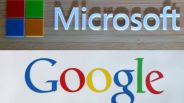The BBC announced that it is working on a voice assistant program for its apps and services to rival the popular Amazon Alexa.
The British media company said the upcoming service will not be packaged together with a hardware device. Instead the voice assistant will be available for all smart devices such as mobile phones, speakers, and TVs.
A BBC spokesperson said the project doesn't have an official title yet, but the service can be activated using the wake-word "Beeb." The company plans to release the voice assistant next year.
BBC's Voice Assistant
To help develop the new Beeb voice assistant, BBC workers in the United Kingdom were asked to send in their own voice recordings. This will help ensure that the program will be able to recognize and understand different regional accents.
Some market analysts were caught off guard by the BBC's foray into voice assistant technology. The industry hasn't necessarily been a cakewalk even for the biggest of tech companies.
Ben Wood, an analyst for London-based research firm CCS Insight, believes the BBC might have a hard time competing with Amazon, Apple, and Google, which have all already established their footing in the industry.
In fact, a report from tech market analyst Canalys said Amazon and Chinese tech company Baidu have a combined 43 percent share in the global smart speaker market in the Q2 of 2019.
Wood pointed out that these tech firms have already invested large amounts of money to solve the challenges brought on by regional dialects, and yet many of them still face issues with the technology.
Using The 'Beeb' Wake-Word
Wood said he was also skeptical about the BBC's decision to use the "Beeb" wake-word.
"Typically voice assistants use a multi-syllable word or phrase such as Alexa or Hey Google to ensure accurate identification," the CCS Insight analyst said.
"I fear Beeb might end up being unreliable."
For its part, the BBC explained that it didn't have any problems using "Beeb" during its research. However, it did clarify that it still hasn't made a final choice regarding what wake-word to use.
The media company believes having its own voice assistant would allow it to develop new programs, features, and user experiences without having to rely on someone else's permission just to create them in a certain way.
The BBC compared its venture into voice assistant technology to that of the BBC iPlayer, where the company made sure that people benefited from the service. Through the iPlayer, the BBC said it was able to provide new content, programs, and services to users in a reliable and easy-to-use way.
The company added that it considers the "Beeb" service as another step to ensure that the values of public service are protected in a voice-enabled future.
ⓒ 2025 TECHTIMES.com All rights reserved. Do not reproduce without permission.




